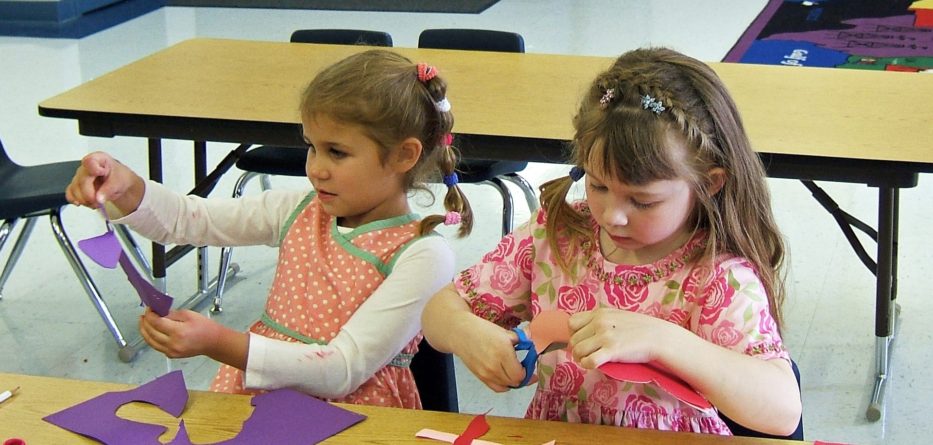Hilbert Morales
EL OBSERVADOR
Realistically, public education begins in the home because the ideal family unit (father, mother, children living in a single-family apartment or dwelling) is the basic social unit which makes up all communities. Recall that today both parents need jobs because of the very high living costs, especially in Silicon Valley.
My grandson is one of several science teachers at a high school. At age 27, he is their youngest tenured faculty whose presence reminds the others that their school’s science curriculum needs to become current by including the latest approved course content in biology, chemistry and physics. Math is already required by the CA Administrative Code and proficiency in algebra is a recognized indicator of future academic potential.
During a family dinner discussion, Robert said, “I worry about my students, especially those Latinos (and other students of color) because they will experience a future with a lower standard of living without some expertise in science and technology… especially here in San Francisco Bay Area. Already many simple jobs are being done by robots; computer skills are essential; along with electronic communication skills. An ability to deal with data bases is a good thing to have and being able to use. Without that matrix of skills, they cannot become ‘knowledge workers’. Only one in ten will have future employment. No one is discussing the public policies needed to deal with these issues now. The other science teachers are almost retired. One in particular has not kept up with scientific progress in biology, chemistry and physics. That dude needs to be relocated by that school’s administration, but the administration does not want to deal with the California Teachers Association union contract. Isn’t that what responsible school administrators do? (To ensure teachers are capable instructors who are actually teaching the required core curriculum.)
I am really proud of my grandson because, as a teacher, he noticed that certain students (of low income families) were arriving hungry to his first period class. After a little due diligence effort (i.e., asking for more information in a sensitive manner), he organized a ‘Sandwich Club’ in his classroom. Kids with generous allowances brought the sandwich makings and snacks to that class. He related their efforts to teaching about nutrition: calorie counts & data bases, vitamins, essential cofactors (iron, zinc, magnesium), enzymatic digestion and absorption process…with the outcome that those students shared food, became closer by talking about nutrition.
He even planned and conducted a field trip to a local grocery store to price many foods (canned goods, meats, vegetables); read & record each package’s nutrition information to form data bases which were analyzed and discussed. Most importantly, he taught them the scientific methods of ‘observed information’ collection (raw data), its analysis, the formation of hypothesis, testing those; and then stating their findings concisely.
All done in an environment they were already familiar and comfortable in. They began to learn with greater interest and effectiveness. In addition, he has introduced hands-on laboratory experiments because, as he puts it, ‘many of my students learn with their hands’…what they do with their hands goes up to their brains! Their academic performance indicator levels improved and the other teachers ‘resented being upstaged’.
Now the reason I am telling you these anecdotes is because too often parents do not get involved in their local school’s Parent-Teacher-Association (PTA). My recommendation is that parents attend at least two PTA meetings; ask for and read the schools’ ‘Student Manual’ and learn to ask questions which cannot be answered by a simple ‘yes or no’ reply. For example: Ask a teacher ‘Tell me about the information content of your biology class? (rather than “Do you teach a biology class?”)
Another elementary school teacher (my godchild) emphasizes reading skills and vocabulary. Why? Her students can add to their vocabulary and obtain information on their own from source materials. She encouraged me to actively participated in reading skills program for the past 27 years as a member of Los Amigos de Washington Elementary School (SJUSD). This Rotary Club of San Jose committee has introduced many programs (computer skills, digital divide programs, career fairs, field trips, etc.) and advocated for the RotaCare Clinic which provides free medical care to local uninsured and impoverished folks. Several field trips are scheduled each year (Mock trial at Superior Court; Tech Museum; City Council meeting; the local zoo; Computer History Museum, Mt. View, etc.) …Why do this? Simply because some kids learn visually and become curious and interested in what they see…so it is very good to have them travel to see things outside their community. Many of these field trips need adult-parent chaperones so consider volunteering (just go on a field trip on a topic in which you have an interest).
Attend at least three local school board meetings per year. Today, Alum Rock Elementary Union School District (AREUSD) and all other schools have passed several bond issues to upgrade teaching facilities and seismic safety issues. Were established contract procedures followed? Insist that these bond issues contain provisions for a ‘Citizens Monitoring Commission’ which ensures full transparency about how those bond funds are used. Become interested in your local School Board meetings where budgets are formed, staffing is approved.
Do your teachers get teaching assistants? Are Student Teacher’s from local colleges allowed? Does the School District have and operate a non-profit foundation? Are their reports posted on their websites? Plan to attend at least three meetings per year prepared to ask questions about an item of interest to you personally.
Remember that you are a STAKEHOLDER because your sales taxes and property taxes end up funding local education. Ask about the impact of Charter Schools which are supported by local educational funds. Washington Elementary School’s budget was reduced 45% because of the large number of charter schools whose location are in that school’s area.
The outcome is a reduction in that public school’s faculty and its programs. Who monitors the charter school’s effectiveness? My observation is that some charter schools skim off the best students some of whom are ‘released and returned’ to the local public school which has to take them back. Consider that a school district’s funding is based upon its ‘average daily attendance’ so when Charter Schools take too many students from a particular school, its funding level is reduced resulting in reduced instructional programming.
If you as a parent do not take some active participatory interest, then an important check & balance of power & authority will be missing. The most direct way to know what is going on at any local school which your child attends is to: a) talk to your own kid…Years ago I learned my daughter Mary was transferred to a ‘special education class’ simply because she had a Hispanic surname and a slight speech lisp. I personally objected; she was returned to her ‘regular class’…which later proved to be very essential in meeting college entry requirements. b) once every three months or so, read the minutes of the school board meeting, PTA; and the school’s non-profit foundation. IT IS YOUR KID WHO WILL BE SHORT CHANGED without your personal monitoring and ‘push-back comments’. These are SOME ISSUES CONCERNING EDUCATIONAL PROCESSES (K-12).






